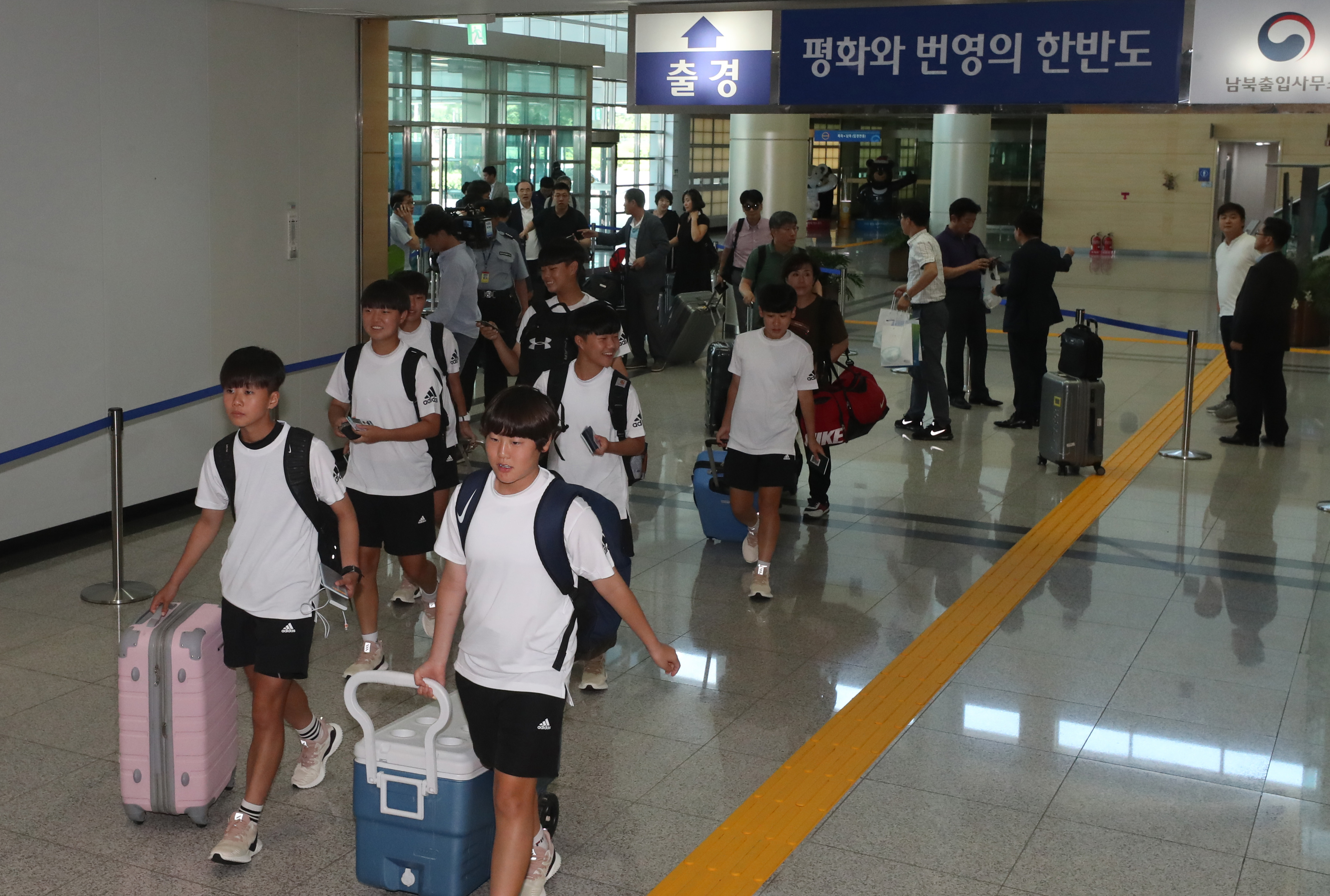
Young South Korean footballers leave for North Korea at the inter-Korean transit office in Paju near the Demilitarized zone (DMZ) dividing the two Koreas on August 10, 2018.
More than 150 South Korean athletes, journalists and officials left for Pyongyang on August 10 for a football tournament, in the latest effort at sports diplomacy between the neighbours. / AFP PHOTO / YONHAP / – / – South Korea OUT / REPUBLIC OF KOREA OUT NO ARCHIVES RESTRICTED TO SUBSCRIPTION USE
More than 150 South Korean athletes, journalists and officials left for Pyongyang on Friday for a football tournament, in the latest effort at sports diplomacy between the neighbors.
The two Koreas, who agreed to increase sports exchanges at a landmark summit between the South’s President Moon Jae-in and the North’s leader Kim Jong Un in April, held a friendly basketball match in Pyongyang last month.
The delegation — including 84 young footballers — will travel by bus to Pyongyang for their 10-day visit, marking the first overland trip by South Korean civilians to the North’s capital in nearly seven years.
Two South Korean U-15 teams — FC Gangwon and Yeoncheon Miracle — will compete in the Ari Sports Cup, a youth football tournament that runs from August 13 to 18 and also includes China, Russia, Uzbekistan and Belarus.
A South Korean coach said the “rare opportunity” to play football in the North’s capital would be a “great experience” for his players regardless of the end result.
“Rather than obsessing about the score, we will try to serve as a peace delegation with a mission to advance South-North sports exchange,” Lee Sung-keun of FC Gangwon said.
As the South Korean delegation traveled north, 64 North Korean workers arrived in Seoul for a football match slated for Saturday.
Waving mini white and blue “unification” flags — a pale blue silhouette of the Korean peninsula — the head of the North Korean group, Ju Yong Gil, said the football game will “create momentum for reunification throughout all classes”.
It will mark the fourth such football match between North and South Korean workers, with the last game taking place in Pyongyang in 2015.
All civilian communication between the two countries — which remain technically at war after the 1950-53 Korean War ended with an armistice instead of a peace treaty — is banned unless approved by the governments.
Sporting cooperation helped spark the current diplomatic thaw, after the North sent a high-level delegation, athletes, cheerleaders and performers to this year’s Winter Olympics in the South.
The two Koreas will also field joint teams at the Asian Games later this month and march together at the opening and closing ceremonies in Indonesia.